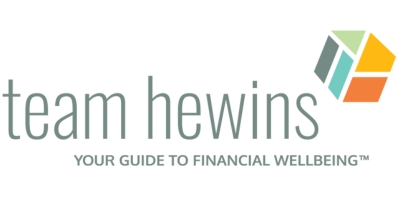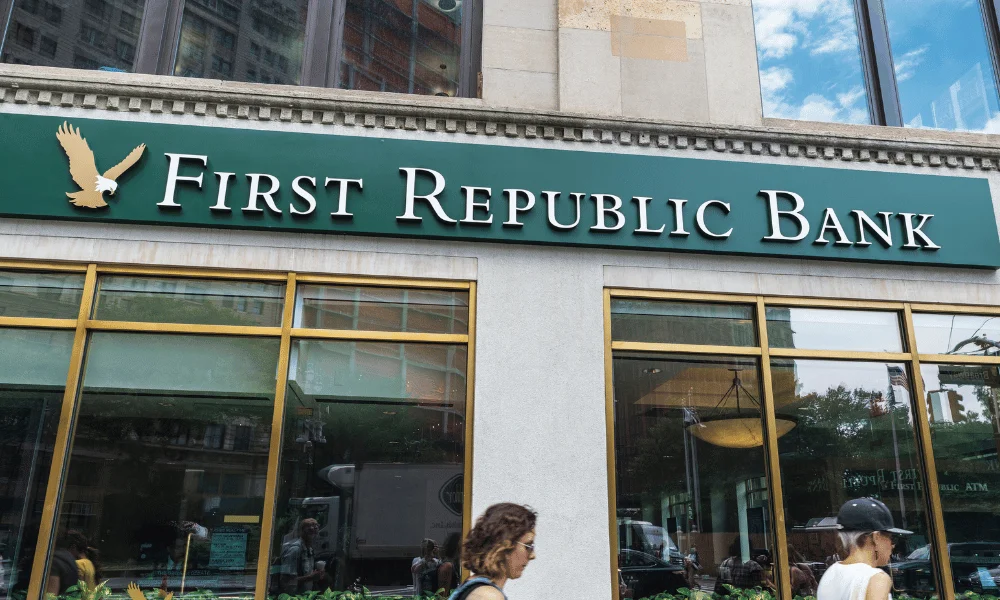Since Silicon Valley Bank (SVB) went under, we have been waiting for the other shoe to drop (not counting Signature Bank as a shoe). And drop it did, almost in slow motion. While half of First Republic’s deposits fled quickly as things came to a head in March, the crisis actually unfolded over a period of months. It is worth looking at what took place here because we still have a set of issues with our banking system that may persist for some time.
Parallels to SVB?
Yes. And many other banks have these fundamental issues too, but like SVB, First Republic had an extreme case. And it had not gone unnoticed. Unlike SVB, which seemed fine until it didn’t, First Republic’s stock dropped 40% last year.[1] It was costing them more to retain deposits, some of which were leaving for Treasury bills and money market funds that paid more. Needless to say, profits suffered accordingly.
The basic issue is raising short-term money (deposits) that can get more expensive and/or go away quickly and investing that money in long-term assets (fixed rate mortgages and Treasuries) that fall in value when rates rise, and which you are stuck with.
The crisis heated up March 10 when SVB failed. First Republic deposits fled, and the stock plunged, continuing to do so through the end of April, when the end finally came. Even after SVB, it took almost two months.
So Where Are We Now?
Good question. This year the big banks got bigger and have gone from being seen as risky but “too big to fail” to being seen as stable and diversified, safe.
By way of contrast, First Republic had a simple business model: give wealthy people great service and get their deposits, then lend those deposits and count on them to be sticky and cheap funding. Not much diversification (e.g., no credit cards, car loans, etc.), betting the ranch on those sticky deposits. The last time the Fed tightened moderately it was not a problem. This time was different.
This was a fairly orderly process, with JPMorgan Chase winning the bid and opening the First Republic branches Monday morning with JPMorgan signs out front. First Republic client deposits are now held by JPMorgan and are accessible.[2]
Where we are now is at something of a crossroads. Do we continue to be an economy with thousands of small regional banks, or do we decide that small banks are too risky and seek the shelter the massive banks seem to offer? Does the whole banking industry get more and more concentrated in the hands of half a dozen huge banks?
Will all of this cause lending standards to tighten so that it is harder to get a mortgage or a business loan? How will commercial real estate get funded if the regional banks that do so much of that business pull back? How will the economy respond to all of this?
Many questions. Stay tuned, but don’t be alarmed. We are clearly working through this difficult situation; it is going to take time.
So How Has the Market Responded?
Actually, the markets appear sanguine, in spite of the news. The S&P 500 rose 1.6% in April and is up over 9% year to date. And the bonds that caused so much trouble for the banks by falling in value last year are doing better too, with the Bloomberg (remember when it was Lehman?) US Aggregate bond index up about 2.6% for the year.[3]
Corporate earnings are beating expectations so far, even as GDP growth slows, a recession is expected by many, and core inflation remains stubbornly high.[4]
Are we once more muddling through, taking the good with the bad? At times like this it becomes abundantly clear that we can’t see what the market outcomes are going to be– things could get worse, or this could turn out to be the beginning of a longer rally for capital markets. Rallies often start during dark days, unpredictable as always.
Be of good cheer! Look forward to talking to you soon.

